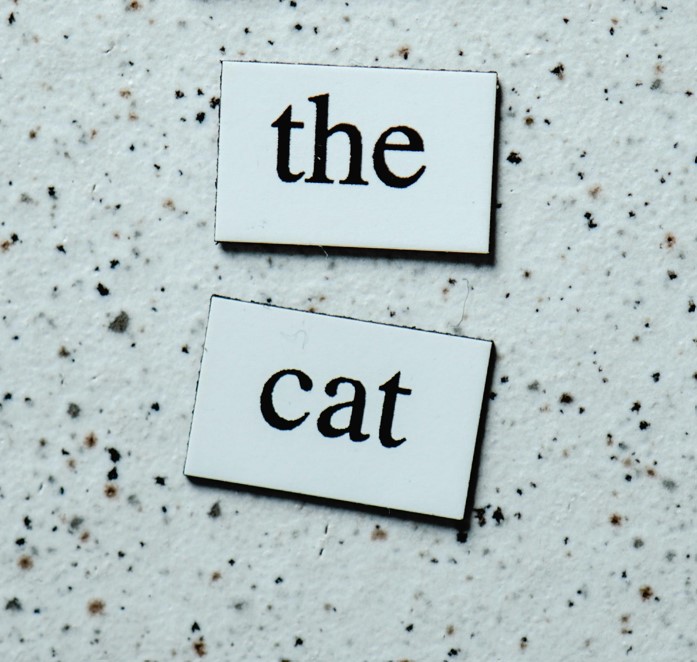Language is a fascinating construct, and at its core lies the simplicity of words and their meanings. Among the most fundamental elements of any language is the concept of articles. In English, we primarily use two types of articles: indefinite articles (“a” and “an”) and definite articles (“the”). This article will delve into the significance of the definite article “the,” exploring its usage, implications, and the unique role it plays in communication.
Understanding the Definite Article
The word “the” is the only definite article in the English language. It is used to refer to a specific noun that is known to the speaker and listener. When we say “the cat,” we are not just referring to any cat; we are pointing to a particular cat that both the speaker and listener understand. This specificity is what distinguishes “the” from indefinite articles, which introduce nouns in a more general sense.
This small word carries a weight of meaning and context that can significantly affect communication. It signifies that the noun is unique or being mentioned for the first time in a conversation. For example, in the phrase “the sun,” we know there is only one sun in our solar system, so “the” conveys that uniqueness.
The Function of “The” in Different Contexts
1. Specificity and Familiarity
The most prominent function of “the” is to indicate specificity. It signals to the listener that the noun is not just any entity but one that is already known or can be identified within the context. For instance, saying “the book on the table” implies that there is a particular book that the listener can see or has previously discussed.
Additionally, “the” is often used when referring to something unique in the conversation. For example, “the president,” “the earth,” or “the internet” all point to singular and widely recognized entities.
2. Cultural and Historical References
“The” also plays a significant role in cultural and historical references. When we refer to “the Renaissance,” “the Great Wall of China,” or “the United States,” we are invoking specific historical events or locations that have a shared understanding within a culture. These references carry a weight of collective memory and significance, further illustrating how “the” connects language with cultural identity.
3. Generic Use
Interestingly, “the” can also be used in a generic sense. When we say “the wolf is a cunning predator,” we are not talking about a specific wolf but making a statement about wolves as a species. This generic use highlights how “the” can transcend singularity to express broader truths about categories or classes of objects.
4. Superlatives
In English, “the” is often used with superlative adjectives. For example, “the best,” “the highest,” or “the oldest” all indicate a comparison within a specific group. This usage underscores the definitive nature of “the,” as it denotes that one entity stands out above all others within a context.
The Role of “The” in Grammar
From a grammatical perspective, “the” is categorized as a determiner. Determiners are words placed before nouns to clarify what the noun refers to. Unlike indefinite articles, which do not specify the noun’s identity, “the” narrows down the possibilities, providing clarity and precision in communication.
Moreover, “the” is used with singular and plural nouns alike. For instance, we can say “the dog” (singular) or “the dogs” (plural), showcasing its versatility in language. This flexibility reinforces its role as a fundamental building block of English syntax.
Common Mistakes in Using “The
While the usage of “the” seems straightforward, non-native speakers often encounter challenges. One common mistake is the overuse or underuse of “the.” For example, many learners may mistakenly say “I go to the school” when referring to school in general, while the correct form would be “I go to school.” Understanding when to use “the” can be nuanced and often depends on context.
Another issue arises with geographical names. Certain places require “the” (like “the Netherlands” or “the Amazon River”), while others do not (such as “France” or “Mount Everest”). This inconsistency can be confusing and requires learners to familiarize themselves with specific cases.
The Evolution of “The”
The definite article “the” has evolved over centuries, tracing its roots back to Old English. Originally, the word was “þe” (pronounced “thay”) and was used similarly to how we use “the” today. Over time, pronunciation and spelling changes led to the modern form we recognize now.
This evolution reflects broader changes in the English language as a whole, which has undergone significant transformations influenced by various linguistic, cultural, and historical factors. The persistence of “the” in modern English underscores its essential role in effective communication.
The Importance of Context
The meaning and impact of “the” heavily depend on context. For instance, “the” can shape a narrative’s direction in literature. A skilled author may choose to emphasize certain characters or settings by strategically using “the,” guiding readers’ perceptions and interpretations.
Context also plays a crucial role in everyday conversation. When speaking, the listener’s prior knowledge and the situational context can dictate how “the” is understood. This dynamic aspect of language highlights the importance of context in communication.
Conclusion
In conclusion, the definite article “the” may seem like a simple word, but its implications are profound. It conveys specificity, cultural significance, and clarity, making it a cornerstone of effective communication in English. Understanding its usage, history, and contextual applications can enhance our grasp of language and improve our expressive capabilities.
As we navigate the complexities of communication, the subtle nuances of words like “the” remind us of the intricate dance between language and meaning. Whether in casual conversation, academic discourse, or literary expression, “the” serves as a vital tool, bridging the gap between the speaker and the listener and enriching our understanding of the world around us.



